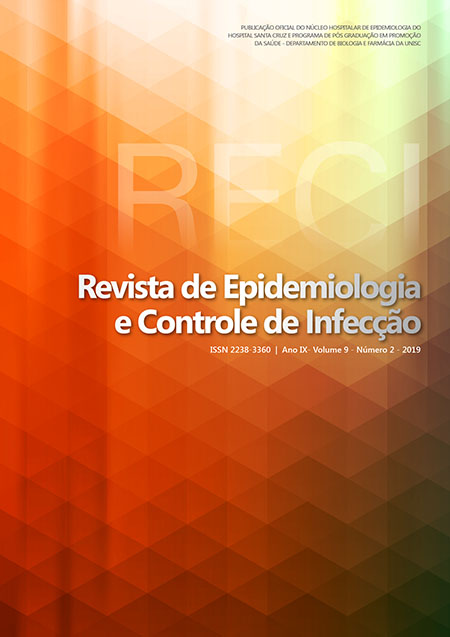Perfil y conocimiento de gestantes sobre el diabetes mellitus gestacional
DOI:
https://doi.org/10.17058/reci.v9i2.12082Resumen
Justificación y objetivos: La Diabetes Mellitus Gestacional (DMG) es el trastorno metabólico que determina la reducción de la tolerancia a la glucosa, diagnosticada en la gestación, que puede o no perpetuarse después del parto. En Brasil, alrededor del 7% de las gestaciones son complicadas por la hiperglicemia gestacional. El presente estudio tuvo como objetivo evaluar el perfil epidemiológico, socioeconómico, clínico-obstétrico e identificar el conocimiento en relación a la Diabetes Mellitus Gestacional de gestantes atendidas en un Centro Especializado de Salud de la Mujer de una Unidad Básica de Salud de Lajeado/RS. Métodos: La metodología consistió en la aplicación de tres cuestionarios (evaluación del perfil socioeconómico, epidemiológico y clínico-obstétrico, evaluación del conocimiento sobre DMG, y evaluación del conocimiento de las gestantes sobre diabetes). Participa ron de la investigación 20 gestantes atendidas en la UBS en el período del 15 de abril al 15 de mayo de 2017. Las informaciones fueron tabuladas en la hoja de Excel, siendo que las variables cuantitativas fueron descritas a través de frecuencia absoluta y relativa y fue seguida la sintaxis prevista para análisis del Diabetes Knowledge Questionnaire - DKN-A. Resultados: Los resultados muestran que las embarazadas no tienen conocimiento sobre la diabetes, aunque el 90% afirma poseer información y actualización sobre temas de salud. La mayoría de las gestantes es blanca, natural de Lajeado, casada o en unión estable, con renta mensual hasta 3 salarios mínimos, 85% posee entre 15 y 35 años y 50% posee enseñanza fundamental. La mayoría (90%) no tiene enfermedad previa a la gestación, 55% utiliza medicación durante la gestación, 65% no practica actividad física y 65% no ha consultado a los nutricionistas en los últimos 12 meses. Ninguna de las gestantes poseía Diabetes Mellitus o tuvo DMG en gestación previa, sin embargo una participante (5%) presenta DMG. Conclusiones: Se concluye que las gestantes con grupo de edad de 15 a 35 años, entrevistadas en la UBS de Lajeado, desconocen los riesgos o los cuidados necesarios en la gestación para evitar el DMG. Descriptores: Endocrinología. Embarazo. Hiperglucemia.Descargas
##submission.downloads##
Publicado
Cómo citar
Número
Sección
Licencia
The author must state that the paper is original (has not been published previously), not infringing any copyright or other ownership right involving third parties. Once the paper is submitted, the Journal reserves the right to make normative changes, such as spelling and grammar, in order to maintain the language standard, but respecting the author’s style. The published papers become ownership of RECI, considering that all the opinions expressed by the authors are their responsibility. Because we are an open access journal, we allow free use of articles in educational and scientific applications provided the source is cited under the Creative Commons CC-BY license.


